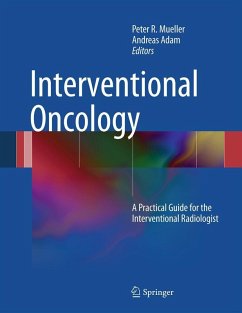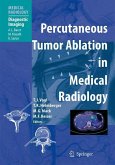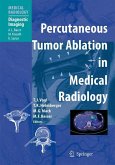Interventional Oncology is a fast-growing new field, as well as an emerging specialty. Many minimally-invasive, imaging-guided procedures seem set to replace more traditional open surgical techniques of treating solid tumors in a variety of organs. The aim of this book is to describe new interventional radiological methods in a succinct and practical form. Diagnostic radiological considerations relevant to the selection and follow-up of patients are also covered. The book begins with an overview of the basic principles of current interventional techniques, including thermal ablation, high intensity focused ultrasound, and embolization. Later chapters focus on tumors of the liver, kidney, lung, and bone, placing new interventional techniques in context by referring to the surgical and oncologic methods of treating the same conditions. With an emphasis on best practices, Interventional Oncology: A Practical Guide for the Interventional Radiologist will serve as a definitive guide to practicing physicians involved in this rapidly evolving field.
From the reviews:
"The authors explore in detail the wide variety of procedures in the emerging field of interventional oncology ... . To my knowledge, this is the only book devoted solely to this field. ... This is perfect as a single source of information for clinical interventional radiologists wanting more specific details on novel techniques and new indications. The busy medical, radiation, and surgical oncology services also will find the book a helpful source of technical detail, new indications, and limitations." (Neal Wilkinson, Doody's Review Service, May, 2012)
"The authors explore in detail the wide variety of procedures in the emerging field of interventional oncology ... . To my knowledge, this is the only book devoted solely to this field. ... This is perfect as a single source of information for clinical interventional radiologists wanting more specific details on novel techniques and new indications. The busy medical, radiation, and surgical oncology services also will find the book a helpful source of technical detail, new indications, and limitations." (Neal Wilkinson, Doody's Review Service, May, 2012)










